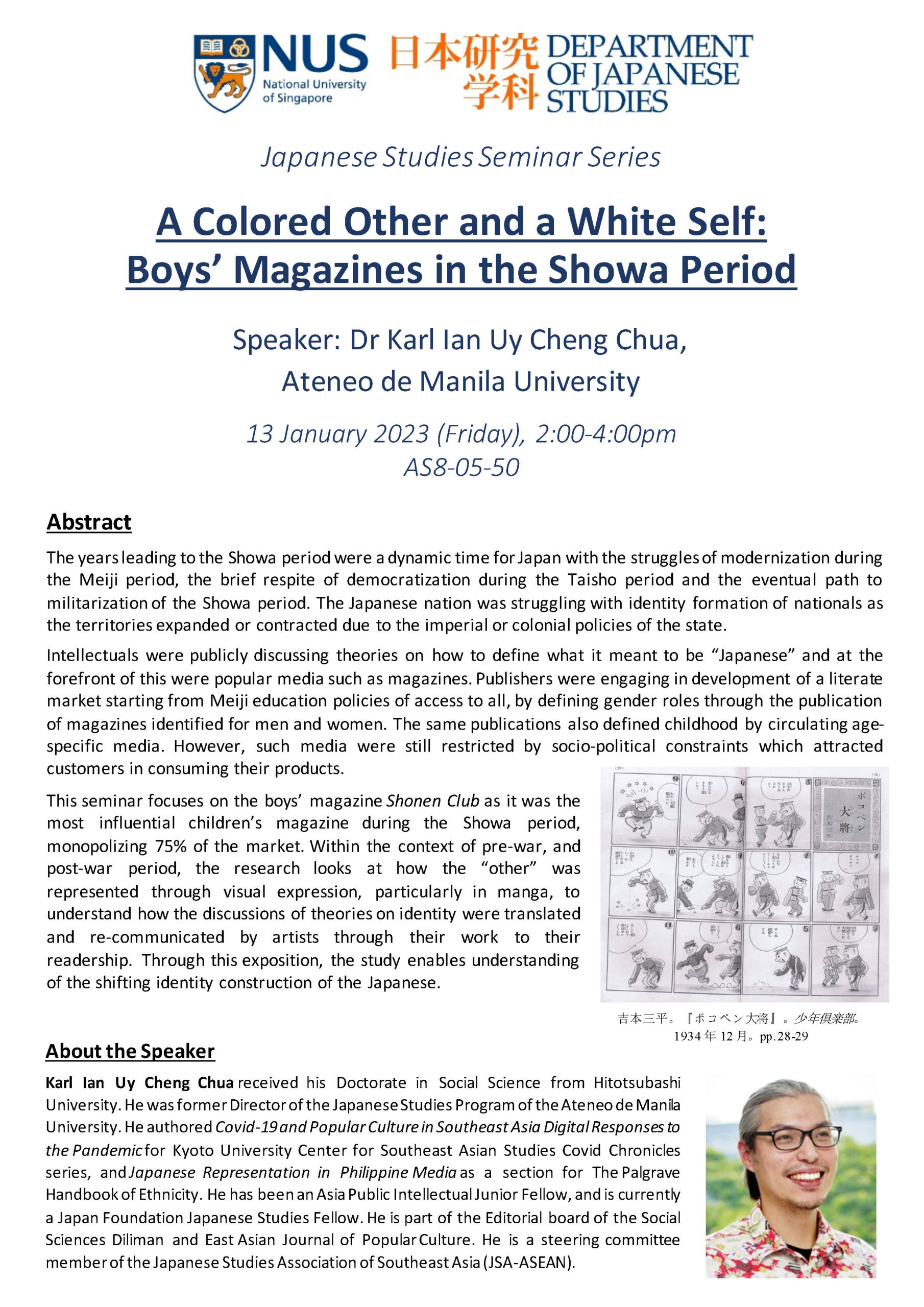A Colored Other and a White Self: Boys’ Magazines in the Showa Period
Abstract
The years leading to the Showa period were a dynamic time for Japan with the struggles of modernization during the Meiji period, the brief respite of democratization during the Taisho period and the eventual path to militarization of the Showa period. The Japanese nation was struggling with identity formation of nationals as the territories expanded or contracted due to the imperial or colonial policies of the state.
Intellectuals were publicly discussing theories on how to define what it meant to be “Japanese” and at the forefront of this were popular media such as magazines. Publishers were engaging in development of a literate market starting from Meiji education policies of access to all, by defining gender roles through the publication of magazines identified for men and women. The same publications also defined childhood by circulating age-specific media. However, such media were still restricted by socio-political constraints which attracted customers in consuming their products.
This seminar focuses on the boys’ magazine Shonen Club as it was the most influential children’s magazine during the Showa period, monopolizing 75% of the market. Within the context of pre-war, and post-war period, the research looks at how the “other” was represented through visual expression, particularly in manga, to understand how the discussions of theories on identity were translated and re-communicated by artists through their work to their readership. Through this exposition, the study enables understanding of the shifting identity construction of the Japanese.
About the Speaker
Karl Ian Uy Cheng Chua received his Doctorate in Social Science from Hitotsubashi University. He was former Director of the Japanese Studies Program of the Ateneo de Manila University. He authored Covid-19 and Popular Culture in Southeast Asia Digital Responses to the Pandemic for Kyoto University Center for Southeast Asian Studies Covid Chronicles series, and Japanese Representation in Philippine Media as a section for The Palgrave Handbook of Ethnicity. He has been an Asia Public Intellectual Junior Fellow, and is currently a Japan Foundation Japanese Studies Fellow. He is part of the Editorial board of the Social Sciences Diliman and East Asian Journal of Popular Culture. He is a steering committee member of the Japanese Studies Association of Southeast Asia (JSA-ASEAN).


